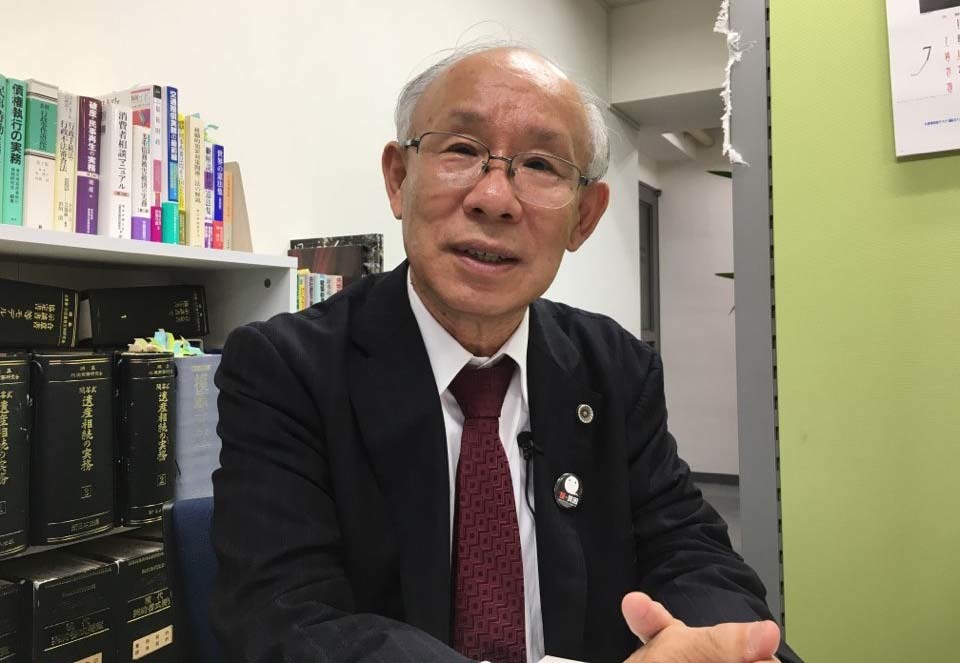 |
|
Kenji Utsunomiya, former president of the Japan Federation of Bar Associations
|
Former president of Japan Federation of Bar Associations calls on Abe to retract export controls
Legal experts from South Korea and Japan sat down together to review the issue of forced labor during Japan’s colonization of Korea and the South Korean Supreme Court’s ruling on that issue and to discuss potential solutions. The guest speaker at the symposium, which was organized by the Seoul Bar Association and held in the Seocho neighborhood of Seoul on Sept. 5, was Kenji Utsunomiya, 73, former president of the Japan Federation of Bar Associations. “The Japanese government’s export controls on South Korea were obviously adopted in retaliation for [the Supreme Court’s ruling on] the forced labor issue. Japan needs to immediately retract those retaliatory export controls and cooperate with the South Korean government to provide relief for the victims of forced labor,” Utsunomiya said. “Japanese companies such as Nippon Steel and Mitsubishi Heavy Industries need to accept the Supreme Court’s ruling while simultaneously taking steps that would be acceptable to the victims, such as offering a voluntary apology and providing compensation.” Utsunomiya said that South Korea and Japan’s agreement to settle outstanding claims was “limited in the sense that it was an agreement reached through a political compromise between the two governments, without consulting the victims, which is to say the affected parties.” “The individual right to claim damages cannot be annulled by an agreement between two states, and the Japanese government and the Japanese Supreme Court have held that the claims agreement didn’t nullify that individual right,” Utsunomiya said. Utsunomiya has long been an advocate of compensating the victims of the Japanese colonial occupation. In a statement issued with the Korean Bar Association in 2010, he called on the governments of the two countries to provide restitution to the former comfort women and the victims of forced labor. Other figures who attended the symposium on Thursday were Hidekazu Zaima, an attorney with the Japan Federation of Bar Associations, and Hideki Yano, with a group called Joint Action for Resolving the Issue of Compulsory Mobilization and Reckoning with History. These figures assessed the position of the Japanese government through the present and underlined the role of Japanese nonprofit organizations. South Korean presenters at the symposium included Lim Jae-seong, an attorney who has been representing the victims of forced labor, and Ryu Yeong-jae, a judge. In their presentations, they explained the issues being debated in the ongoing litigation and the rights of the victims of forced labor under international law. Zaima said that the Japanese government’s export controls and criticism of South Korea represent “a very intentional and political response.” “Japan ought to be treating the issue of victims of forced labor as an issue of human rights, rather than a political one, and taking the victims’ lawsuits seriously,” he said. By Jang Ye-ji, staff reporter Please direct comments or questions to [english@hani.co.kr]






